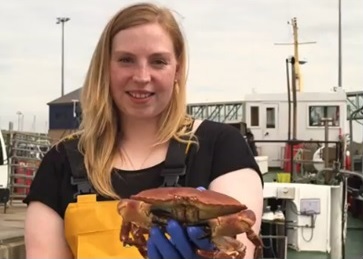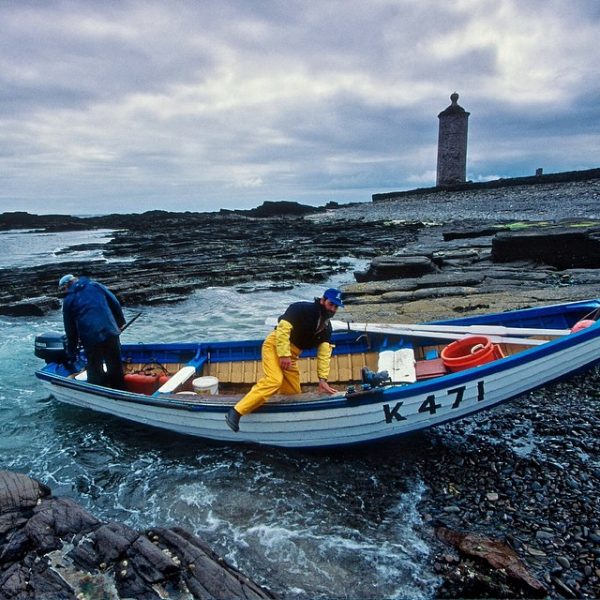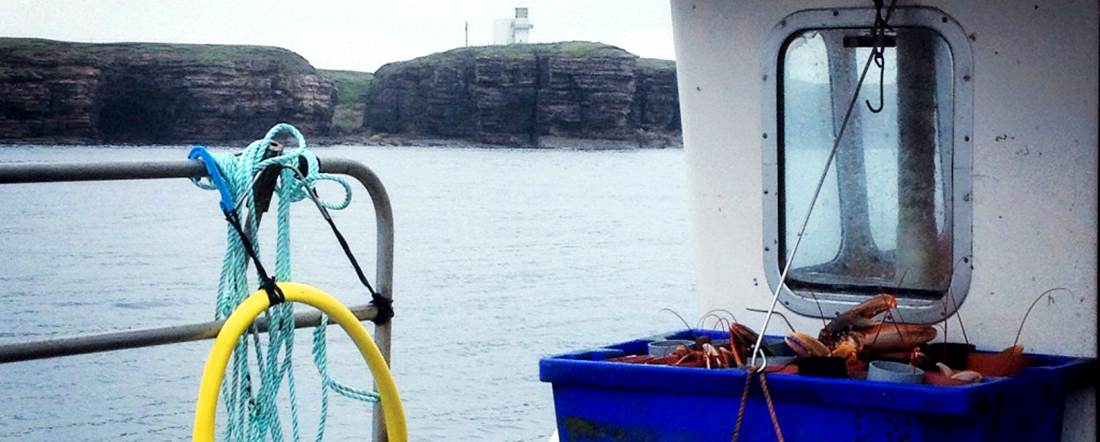Fisheries Innovation and Sustainability (FIS) is committed to supporting the professional development of current and future Scottish industry leaders. We believe that by investing in people, we can build capacity and release untapped potential in Scottish fishing communities and organisations.
This is why FIS, together with The Fishmongers’ Company, is sending Kate Rydzkowski from Orkney Sustainable Fisheries to the renowned Harvard Business School, in Massachusetts, USA. In what we believe is a first for Scottish fishing organisations, Kate will act as our guinea pig to test what ‘executive education’ courses can bring to the seafood sector.

Kate Rydzkowski
Kate will attend a week-long course at Harvard from the 8th to 13th of December which, after much research, we identified as having the most potential benefit to the sector: ‘Leading and Building a Culture of Innovation’.
Executives from a wide range of organisations and industries will be present from all over the world – though none perhaps as far away from Harvard as Orkney.
The course will not follow the ‘conventional’ teaching styles of lectures and tutorials, but rather foster an active learning environment where attendees will be ‘engaged in an active process that blends together large plenary sessions and hands-on work in small groups, individual reflection, peer exchange, and group debates’.

Lobster fishermen in Orkney, Scotland. Photo Jim Richardson
Kate and her fellow course-mates are not allowed to use their mobile phones at all, with the ethos being that total immersion without distraction allows you to learn and perform fully. Kate believes this may help attendees, including herself, understand how much concentration is required to be innovative.
Attendees have been given pre-course ‘homework’ which consists of a two page piece summarising their industry’s needs in terms of innovation (‘not a difficult task’, Kate says, who believes there are many potential benefits of innovation to fishing) as well as choosing a book that has most influenced their concept of ‘leadership’.
For Kate, innovation means learning something new from another business and applying it to fisheries – which might not always involve technology. In fact, Kate believes that communication is key to fishing and is keen to find new ways to communicate effectively across multiple demographics that exist within this industry. Kate hopes to come away from the course with an ‘innovation mindset’ that can be applied at every level of the sector, or at least an understanding of how to encourage one, which she can then share with others for the benefit of the sector.
Kate’s trip will help determine if such courses are a worthwhile investment for busy industry executives shaping fisheries management. We hope she will find answers to the questions behind the decision to invest in this course: How do you build a culture of innovation in the Scottish seafood sector?
Orkney Sustainable Fisheries conduct fisheries research and management of inshore fisheries in Orkney. As the Fishery Development Manager with two full-time researchers, Kate calls it ‘neat but efficient’. Their research is driven by market demand as well as fishermen themselves, and, since starting, has broadened out to take on new and innovative areas. They work closely with Heriot-Watt University’s Orkney Campus.

Photo from www.orkneysustainablefisheries.co.uk
Kate hopes she will have time to tour around Boston (including a visit to their well-known aquarium) for a day after her course finishes before flying back to Scotland. She is ‘really looking forward’ to the trip and we are excited for her to share her experience with FIS members and at the Scottish Fishing Conference 2020.

